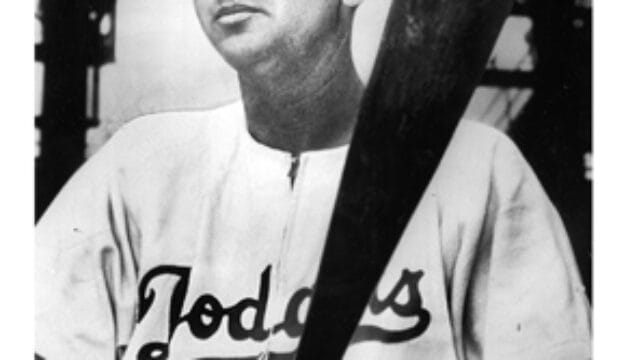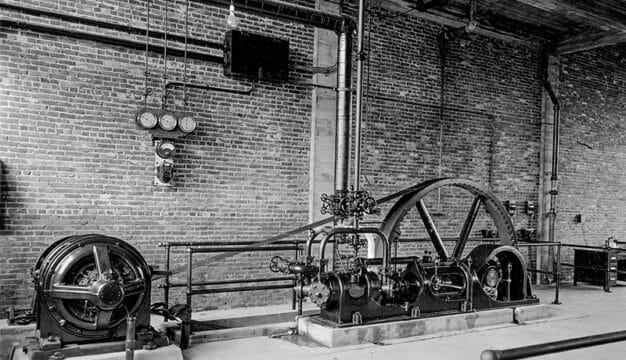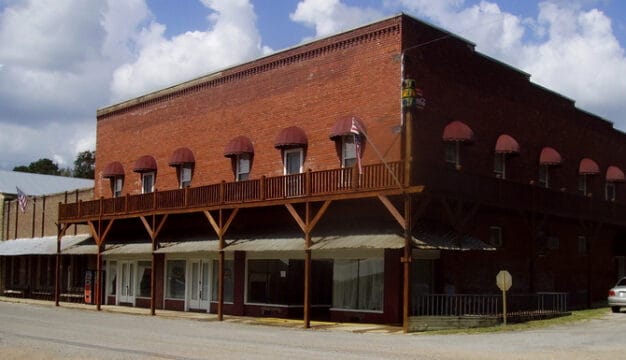Boaz
Boaz is located in the northeast part of the state primarily in Marshall County, although part of the city also is located in Etowah County. Long known for having some of the first factory outlet stores in the state, Boaz also is home to a branch of the popular Unclaimed Baggage Center, based in Scottsboro.
History
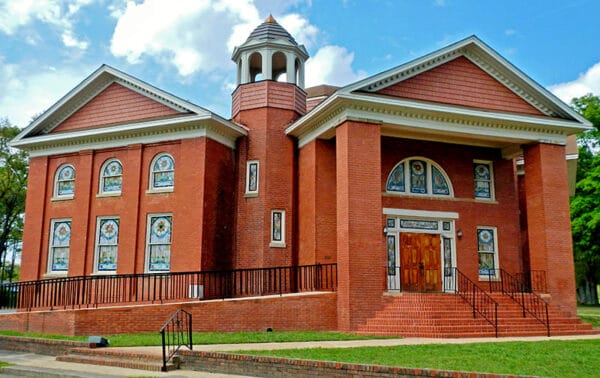 Julia Street Memorial United Methodist Church
The area around Boaz was settled in the early 1850s, but the town was not officially founded until November 11, 1878, when several families, led by the Sparks family, relocated there from Georgia. By 1886, the town had been named Boaz, after a figure in the Old Testament, and a post office had been established. Boaz Seminary, sponsored by the Methodist Church, opened in 1898; its name was changed to the John H. Snead Seminary in 1906 and would later evolve into Snead State Community College. A railroad line came through town in 1892, and the city was incorporated in 1897, although sources differ as to the exact date (one lists incorporation as early as 1884). Electrical service was established in town in 1912.
Julia Street Memorial United Methodist Church
The area around Boaz was settled in the early 1850s, but the town was not officially founded until November 11, 1878, when several families, led by the Sparks family, relocated there from Georgia. By 1886, the town had been named Boaz, after a figure in the Old Testament, and a post office had been established. Boaz Seminary, sponsored by the Methodist Church, opened in 1898; its name was changed to the John H. Snead Seminary in 1906 and would later evolve into Snead State Community College. A railroad line came through town in 1892, and the city was incorporated in 1897, although sources differ as to the exact date (one lists incorporation as early as 1884). Electrical service was established in town in 1912.
The Boaz economy for years depended primarily on cotton and by providing surrounding farms with supplies and products. A cotton gin was one of the early industrial advances in the area. The boll weevil infestation and the Great Depression severely affected the city’s economy. It began to recover as area farmers diversified into poultry and livestock production, and as with the rest of the state, Boaz’s economy recovered further with the advent of World War II. After the war, Boaz became a center of used automobile sales and repair and in the 1970s was one of the first areas in the state to attract factory outlet stores. The city established its own school system in 2004 and opened a new public library in 2006.
Demographics
According to 2020 Census estimates, Boaz recorded a population of 9,587. Of that number, 91.2 percent of respondents identified themselves as white, 8.0 percent as Hispanic, 4.5 percent as African American, 1.7 percent as two or more races, 0.3 percent as American Indian, and 0.1 percent as Asian,. The town’s median household income was $41,556, and the per capita income was $22,026.
Employment
According to 2020 Census estimates, the workforce in Boaz was divided among the following industrial categories:
- Manufacturing (28.0 percent)
- Educational services, and health care and social assistance (18.2 percent)
- Retail trade (16.9 percent)
- Other services, except public administration (7.8 percent)
- Transportation and warehousing and utilities (7.2 percent)
- Construction (6.8 percent)
- Professional, scientific, management, and administrative and waste management services (3.8 percent)
- Public administration (3.7 percent)
- Arts, entertainment, recreation, and accommodation and food services (3.6 percent)
- Finance, insurance, and real estate, rental, and leasing (1.9 percent)
- Wholesale trade (1.4 percent)
- Agriculture, forestry, fishing and hunting, and extractive (0.4 percent)
- Information (0.1 percent)
Education
Schools in Boaz are part of the Boaz City School District; the town has two elementary schools, one intermediate school, one middle school, and one high school. Snead State Community College has its main campus in Boaz.
Transportation
U.S. Highway 431 and State Highway 205 both run roughly north-south through the city, and State Highway 168 runs east-west. The Albertville Municipal Airport is located approximately six miles northwest of the city.
Events and Places of Interest
Boaz recreational facilities include a softball complex, a recreation center with basketball courts, and a municipal pool.
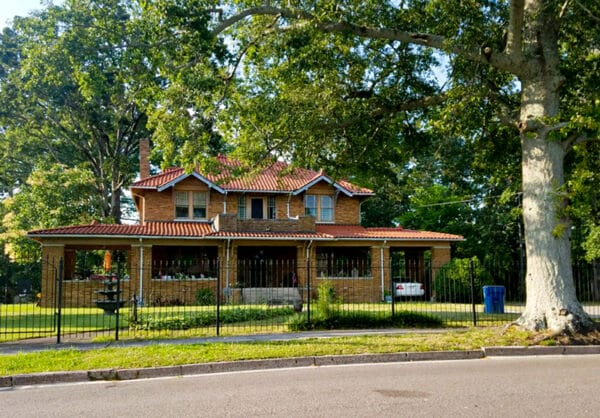 Edward Fenns Whitman House
The Boaz Harvest Festival, established in 1965, is held on the first weekend in October. It features the crowning of a Miss Harvest Festival and a Little Miss Harvest Festival, as well as vendors for food and arts and crafts. The city also holds a fireworks display and concert in celebration of the Fourth of July, an antique tractor show in late July, and a Christmas Parade.
Edward Fenns Whitman House
The Boaz Harvest Festival, established in 1965, is held on the first weekend in October. It features the crowning of a Miss Harvest Festival and a Little Miss Harvest Festival, as well as vendors for food and arts and crafts. The city also holds a fireworks display and concert in celebration of the Fourth of July, an antique tractor show in late July, and a Christmas Parade.
The Julia Street Memorial United Methodist Church, the Snead Junior College Historic District, the Thomas A. Snellgrove Homestead, and the Edward Fenns Whitman House all are listed on the National Register of Historic Places. In addition, Boaz Elementary School, the First Baptist Church and Cemetery, and the Methodist Episcopal Church, South all are listed on the Alabama Register of Landmarks and Heritage.
Additional Resources
Allen, Lee N. and Catherine. The Boaz Hertitage: A Centennial History of Boaz, Alabama and Vicinity. Boaz, Ala.: City of Boaz, 1998.
Marshall County Heritage Book Committee. Heritage of Marshall County. Clanton, Ala.: Heritage Publishing Consultants, 2000.
